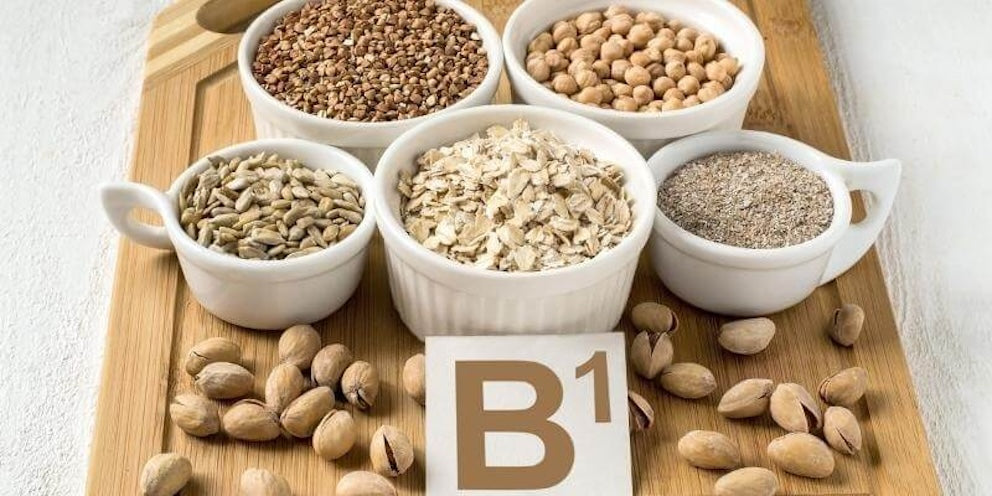Vitamin B1 (thiamine) - What it is, effects and intake
What is vitamin B1 (thiamine)?
Vitamin B1, also known as thiamine, is a water-soluble vitamin that is particularly important for energy metabolism. More specifically, the body needs it for energy production from carbohydrates. It is also involved in amino acid metabolism and is essential for the nervous system.

What is vitamin B1 good for?
Vitamin B1 is involved in various processes in the body. Strong nerves, a clear head and more balance are just a few benefits of an adequate B1 supply. The B vitamin is particularly important for the central nervous system. It plays a decisive role in regeneration after illness or trauma. Together with vitamin B6, it is used to treat nervous system diseases. Together, both vitamins are said to have a particularly good effect. They influence various metabolic reactions, can repair damaged nerve fibres, and have a pain-relieving effect.
According to studies, B1 has even been shown to have a soothing effect on PMS symptoms.

Vitamin B1
Deficiency symptoms
If there is an insufficient supply of the B vitamin, various deficiency signs or symptoms can occur. These include:
- Loss of appetite
- Sleep problems and fatigue
- Nausea
- Weight loss
- Muscle weakness & pain
- Paralysis
- Memory problems
- Cardiovascular system failure
- Mental problems such as depression, anxiety or irritability

Food with thiamine
B1 is present in both animal and plant foods and can thus also be sufficiently absorbed as a vegan/vegetarian.
Foods with vitamin B1 include sunflower seeds, pine nuts, oatmeal, whole grain products, soybeans, legumes, potatoes, and even peanuts.
Our new Keepin' It Calm Vitamins with Ashwagandha contain an additional B-complex of vitamins B1 and B2. They thus contribute to normal functioning of the nervous system, as well as reduce fatigue.

NASSIM JAMALZADEH:
"Vitamin B1 or thiamine is not only important for the immune system but is also involved in many important processes in the body. Above all, vitamin B1 plays an essential role for the nervous system, so it should definitely not be missing from the diet."
FAQs ABOUT VITAMIN B1 (THIAMINE)
FAQs ABOUT VITAMIN B1 (THIAMINE)
The daily requirement of thiamine varies due to different age and gender. On average, however, it is 1-1.4 mg per day, according to the DGE.
Vitamin B1 is present in both plant and animal foods. Therefore, it can also be taken in naturally through a vegan diet.
Yes, vitamin B1 and thiamine are the same thing. Thiamine is the term often used in technical language for the B vitamin.
It is hardly possible to overdose on vitamin B1 via food. Furthermore, no symptoms of an overdose are known so far. However, if thiamine is injected directly into the blood in high doses, cramps, cardiac arrhythmias, or even headaches can occur in the worst case.
Let customers speak for us
Study on the efficacy of thiamine (vitamin B1)
We provide the following scientific studies for your general information. The results obtained in these studies do not necessarily apply to all individuals. Feel free to click on the corresponding links to get more detailed information.
The report gives a brief overview of the importance of vitamin B1.
Vitamin B1 deficiency and cardiovascular disorders.
The report describes the relationship between a thiamine deficiency and diseases of the blood vessels.
The role of thiamine in health and disease
The report gives an overview of the involvement of vitamin B1 in processes in the human body.















